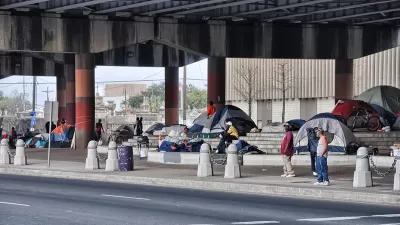U.S. Department of Housing and Development (HUD) Secretary Ben Carson testified before the Financial Services Committee yesterday. The media had plenty to report after the hearing.

Most of the media coverage of HUD Secretary Carson's hearing before the House Financial Services Committee, chaired by Rep. Maxine Waters (D-CA), focused on the gaffes and awkward tension of the hearing.
The hearing brought Secretary Carson to task for proposing major cuts to the HUD budget, proposing a rule that would reportedly displace 55,000 children from public housing, and also proposing rent increases for subsidized households (an idea that was later rescinded).
Aaron Rupar, writing for Vox, called the hearing a "disaster," and "in trying to explain these proposals, Carson demonstrated a shocking level of condescension toward members of Congress, as well as a lack of familiarity with basic housing terminology."
In coverage for The Washington Post, Colby Itkowitz focused on the Secretary Carson's mistaken understanding of the term REO, which stands for "real estate owned." Carson thought the term was Oreo, like the cookie. That gaffe led to a sharp exchange with Rep. Katie Porter (D-CA), that the congressmember shared on Twitter.
I asked @SecretaryCarson about REOs - a basic term related to foreclosure - at a hearing today. He thought I was referring to a chocolate sandwich cookie. No, really. pic.twitter.com/cYekJAkRag
— Rep. Katie Porter (@RepKatiePorter) May 21, 2019
Writing for Politico, Katy O'Donnel focused on the strong words by Committee Chair Maxine Waters: "Ticking off concerns with an 'outrageous plan' to reduce rental assistance, delays in providing disaster aid to Puerto Rico and a 'cruel proposal' to bar undocumented immigrants from subsidized housing, Waters told Carson, 'the department is actively causing harm.'"
FULL STORY: Ben Carson’s first hearing before Maxine Waters’s committee was a disaster

Montreal Mall to Become 6,000 Housing Units
Place Versailles will be transformed into a mixed-use complex over the next 25 years.

Planetizen Federal Action Tracker
A weekly monitor of how Trump’s orders and actions are impacting planners and planning in America.

DARTSpace Platform Streamlines Dallas TOD Application Process
The Dallas transit agency hopes a shorter permitting timeline will boost transit-oriented development around rail stations.

Interactive Map Reveals America's “Shade Deserts”
Launched by UCLA and American Forests to combat heat-related deaths, the tool maps the shade infrastructure for over 360 U.S. cities.

Bicycles and Books — In Sacramento, Libraries Now Offer Both
Adult library card holders can check out e-bikes and e-trikes for up to one week.

Colorado Landfills Emit as Much Pollution as 1M Cars
Landfills are the third-largest source of methane pollution in Colorado, after agriculture and fossil fuel extraction.
Urban Design for Planners 1: Software Tools
This six-course series explores essential urban design concepts using open source software and equips planners with the tools they need to participate fully in the urban design process.
Planning for Universal Design
Learn the tools for implementing Universal Design in planning regulations.
City of Mt Shasta
City of Camden Redevelopment Agency
City of Astoria
Transportation Research & Education Center (TREC) at Portland State University
US High Speed Rail Association
City of Camden Redevelopment Agency
Municipality of Princeton (NJ)





























